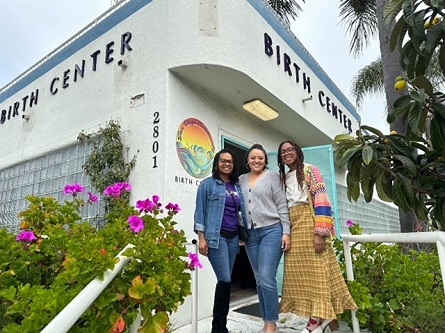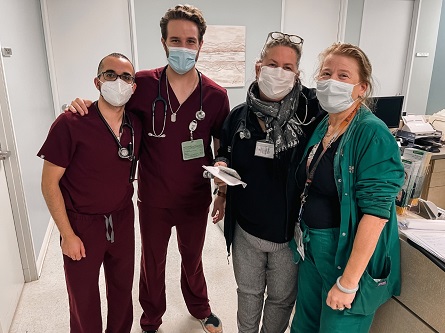Originally published on the UC Davis Health "Insider" for employees on April 26, 2024.
By Helen Kales, M.D.
Psychiatry
UC Davis Health
Dear Colleagues,
Recently incarcerated persons are among the most vulnerable in our society with risk factors including homelessness, substance abuse and mental health problems, which are often inextricably linked. These risk factors increase the likelihood of poor outcomes such as overdose, premature mortality, and a high rate of emergency department visits.
Re-arrest is so common that it is known as a “revolving door.” This vicious cycle is associated with high costs to both the person themselves as well as the community. A seminal study in Florida in 2010 found that over a 5-year period, 97 persons with frequent recidivism to the criminal justice system were associated with 2,200 arrests, 27,000 days in jail and 13,000 days in crisis units, state hospitals and emergency rooms, at a cost to taxpayers of roughly $16 million. The “re-entry” period of the first several weeks following discharge from incarceration appears to the most critical one for intervention.
Following release from incarceration, individuals have multiple needs: housing, proof of identification, legal aid, substance abuse and mental health treatment, medical care, transportation, and social support. Case management is the coordination of an individual’s care, linking them to relevant services and helping them to overcome barriers to resource utilization as well as outreach and crisis intervention. Such coordination has been shown to effectively improve multiple outcomes for at-risk recently incarcerated persons.
The UC Davis Department of Psychiatry and Behavioral Sciences has provided care to individuals incarcerated in the jail in Sacramento for almost 40 years. Starting in the spring of 2022, using funds from my chair package, UC Davis Psychiatry and Behavioral Sciences partnered with the largest federally-qualified health center (FQHC) in the region, WellSpace Health, to create a unique case management program for recently incarcerated individuals called the SAFE-T (Sub-Acute Facilitated Engagement and Transitions) Program. The gains of the hundreds of patients impacted by SAFE-T were recognized by Congresswoman Doris Matsui via selection of the program to be expanded via inclusion in the FY23 Omnibus bill signed by President Biden. Subsequently, this expansion was funded by a $1.5 million dollar grant from the Substance Abuse and Mental Health Services Administration.
With this funding, the Department of Psychiatry and Behavioral Sciences has continued to partner with WellSpace Health to double the size of the SAFE-T program and to collaborate with Innovation Technology and the Digital Co-Lab to link recently incarcerated and released individuals with mental health and substance use disorders with a “SAFE-T” App that digitizes area resources. A partnership with Verizon has enabled us to furnish cellphones to participants.
We look forward to improving the lives of hundreds of our most vulnerable people in the Sacramento community as well as to provide a model program for the rest of the nation. Thank you for your support!
Mental Health Resources for Local Help
- SacMap - A map of local mental health programs and services for adults in Sacramento County.
- Sacramento County Behavioral Health Services.
- 988 Lifeline Chat and Text.
What our employees have said about how they support their mental health
Establish and maintain healthy boundaries in both my personal and professional life so I have the space to function positively. Staying out of negative gossip circles and always thinking of something I enjoy about other people. If something makes me feel bad, I make every effort to make sure those around me do not experience the same thing.—Danielle Schneider, Clinical Research Coordinator, Department of Surgery
I make an effort for some type of self-care every day. This can be playing with my dogs, taking a long, hot bath, reading a good book, making a meal, or spending time just sitting in my backyard. I find that if I go a few days without making time for self-care my outlook on life and my interactions with others are affected (and not in a good way). Self-care is simple, but not always easy - but it is ALWAYS worth it!—Nolana Daoust, Infection Prevention Unit
Remain curious and in a bit of awe every day! Pay attention to all senses even in the midst of a stressful situation, notice something you wouldn’t have unless you made the conscious effort - wind blowing outside, colorful painting on the wall, a brief & kind exchange between colleagues during a meeting…—Basak Kaya, Executive Director, Revenue Services Department




